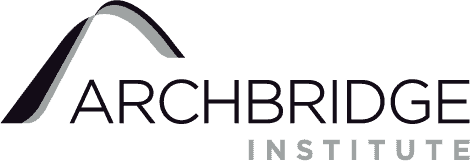This article was originally published on newsweek.com
America’s standing as the world’s largest economy, with a reputation as a hub of innovation and as a land of opportunity, owes much to its system of free-market capitalism. Economic freedom has lifted more than one billion people out of poverty worldwide. And yet, there continues to be skepticism about capitalism in the U.S., where people blame economic freedom for everything from COVID-19 to the fire in the Gulf of Mexico.
Trust in capitalism has especially diminished among young people, to the point where capitalism and socialism are equally popular. While the reasons for such skepticism are varied, Harvard Economist Edward Glaeser has hypothesized that the young are reacting negatively to policies that favor entrenched interests (crony capitalism) and that they favor “hyper-redistribution” rather than true socialism. Others have argued that students are being influenced by left-wing professors who dominate American college campuses.
We wanted more than a hypothesis. So in order to gain insight into young people’s views, we surveyed 1,000 college students at 71 four-year college and universities across the country. And what we found was surprising.
Our survey did find that socialism was viewed more favorably than capitalism among U.S. college students. 24 percent of respondents had a positive view of capitalism, compared to the 32 percent who had a positive view of socialism.
There were understandably large differences in views of capitalism and socialism among students with different political ideologies. Politically conservative students were much more likely to have a positive view of capitalism and a negative view of socialism, in comparison to politically liberal students.
But how students conceptualize capitalism and socialism may influence their attitudes. In defining capitalism, 55 percent of respondents said that it is “an economic system in which property is privately owned, exchange is voluntary, and production and pricing of goods/services are determined by market forces”—a definition of free-market capitalism. The other 45 percent of respondents defined capitalism as “an economic system in which corporations utilize grants, special tax breaks, political connections, and special rules that favor them over competitors to earn profits”—a definition of crony capitalism. This distinction matters: 42 percent of students using a free-market definition, compared to two percent using a crony capitalism definition, have a positive view of capitalism.
We found similarly interesting responses when we asked students to choose the appropriate definition of socialism. In defining socialism, 42 percent of respondents said that it is “an economic system in which the types, quantities produced, and prices of goods and services are planned by the government, and property is owned by ‘society'”—a central planning definition. The other 58 percent defined it as “an economic system in which individuals and companies make decisions on the types, quantities produced, and prices charged for most goods and services, but the government plays a very active role in assuring prices are fair and in ensuring an equitable distribution of resources between rich and poor”—a redistribution definition of socialism.Among students defining socialism as redistribution, 45 percent had a positive view, in comparison to 14 percent for those who defined it as central planning.
There is clearly confusion about what capitalism and socialism entail. Students professing support for socialism are not really in favor of what is traditionally viewed as socialism (central planning), but rather “hyper-redistribution.” Moreover, students reacting negatively to capitalism may not be rejecting the free market, but rather rejecting cronyism.
Unfortunately, the confusion over the definitions of capitalism and socialism also seems to coincide with a lack of understanding of their implications. Although students are right in being skeptical of crony capitalism, their belief in “hyper-redistribution” seems to ignore the fact that less wealth for redistribution will be created when people are not able to enjoy the fruits of their labor. Further, the types of government involvement they might favor—subsidies for green energy, for example, or special benefits in the name of social justice—contribute to the crony capitalism they oppose.
Our research also found that university education is influencing students’ views on capitalism and socialism. Although 56 percent of students responding to our survey said that their view of capitalism has not been changed by college classes and activities, 36 percent said college has given them a more negative view of capitalism and only eight percent said it has given them a more positive view of capitalism. On the other hand, while 59 percent of respondents said that college classes and activities have not changed their view of socialism, 27 percent reported that college has given them a more positive view of socialism.
Many students are not receiving an accurate view of the state of the world from their college experience, which could be undermining their ability to see how free markets have supported human flourishing. Only 49 percent of students surveyed say that based on what they have learned in college, the world has been getting better over the last 50 years, in terms of extreme poverty, life expectancy, hunger, and literacy. This comes at a time when all of these factors have improved dramatically.
Higher education is increasingly going in the wrong direction. In order to continue the cause of human flourishing, colleges need to do a better job of teaching students about the progress humans have made—and the important role free-market capitalism has played in that progress.
John Bitzan is the Menard Family Director of the Sheila and Robert Challey Institute for Global Innovation and Growth
Clay Routledge is a professor of management at North Dakota State University, a faculty scholar at the Challey Institute for Global Innovation and Growth, and a senior research fellow at the Archbridge Institute.
The views in this article are the writers’ own.


